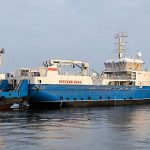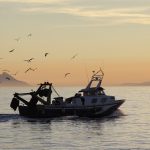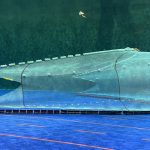Erik Anderson, of Portsmouth’s Fishing Fleet Committee, explained that Portsmouth’s geographic positioning allowed to look out over the harbor and to enjoy its waterfront view. Currently, however, Portsmouth’s historically prosperous fishing industry struggles to remain afloat. He also told that the commercial fishing industry is going though some tough times.
He attributes industry stress to current economic decline and thousands of pages of regulations. The chief regulating bodies are the N.H. Fish and Game Department and the National Marine Fisheries Service, which control the basic size, sex, location and quantity of fish that may be taken, as well as the transportation, sale, inspection and processing of all marine species.
Anderson reports that the government regulations are the most extreme that has ever seen. Lifelong fisherman John Borden remembers what it was like to fish 20 years ago, before the reels of regulations. He told that it used to be, if you went hard or you worked hard, you could make money, but now it’s become a wash. Based on current federal policies, Portsmouth’s groundfish fleet is only permitted to fish 24 days out of the year, a regulatory tactic intended to help rebuild regional stocks of haddock, cod and yellowtail flounder.
In order to maintain full-time employment, fishermen must diversify. Borden also said that the New England Fisheries Management Council and National Marine Fisheries Service are both in the process of adopting new rules for 2009 and 2010, but the industry expects to see more red tape in the coming years.
Anderson believes the troubles of the fishing fleet should be a matter of community concern. He appeal the local people to support and recognize the vital role fishermen play in maintaining Portsmouth’s identity as a working waterfront community. Portsmouth’s Fishing Fleet Committee is working on ways to reconnect the shore with its ships.








